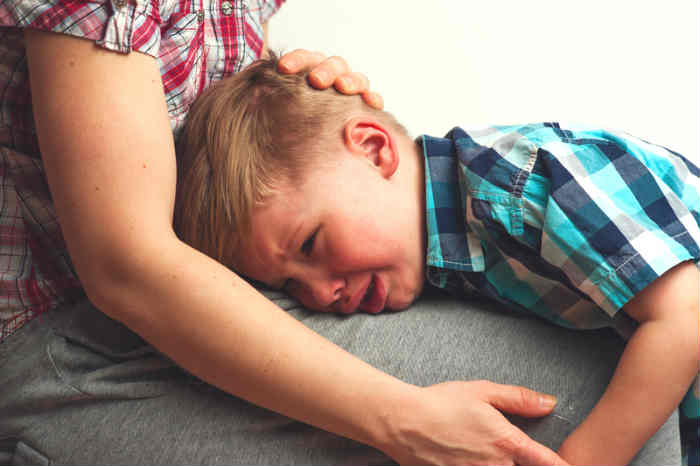










Parents have much to worry about, the health and well-being of their family, finances, and much more. While worry and stress are common feelings from time to time, some people experience these emotions intensely, with little or no respite. If you find yourself worrying excessively, to the point that it interferes with your daily functioning, chances are you have an anxiety disorder.

Anxiety disorders are highly treatable with therapy and medication, but for those who are not being treated, it can negatively impact their relationships in many ways. For those with children, their children will be impacted as well.
It’s often said that anxiety is contagious; if you know someone who suffers from anxiety, you may recognize this to be true. When someone is nervous or on edge, it can make the people around them also feel uncomfortable and on edge. This is especially true for children who live with a parent with anxiety.
Parents model for their children how they should look at the world, and when a child sees a parent suffering from anxiety, the message they may receive is that the world is unsafe, unpredictable, and full of doom and gloom. This can cause children to feel anxious themselves, as they are not being given examples of how to think rationally about how the world works. Consequently, children develop problematic behaviors such as irritability, defiance, excessive fear, or separation anxiety, making it difficult for them to function.
In addition to modeling anxious behavior, a person’s parenting style and strategy can be deeply affected by their levels of anxiety. Parents struggling with anxiety often fear that the world is a place where terrible things happen, causing them to feel like they need to protect their children, often unnecessarily.
Often called “helicopter parenting,” parents with anxiety can often inadvertently engage in behavior that is overly cautious or protective, thus decreasing a child’s ability to have positive, age-appropriate experiences. Children are resilient and can handle a lot of uncertainty and unpredictability without being devastatingly impacted by it, but they also need the opportunities to fail or struggle in order to learn how to tolerate difficulties in life.
If you have anxiety, and see that it negatively affects your child, perhaps in some of the ways described above, there are strategies at hand to help you reduce your anxiety so you can parent with less stress or distress:
If you experience anxiety, it’s often because your thoughts are based on irrational fears. Try challenging your fearful assumptions. This can help reduce anxiety and allow you to look at the situation from a calmer and more rational place. If your thoughts are not based on truth or if they are unhelpful, shifting your thought process to something positive can help you reduce anxiety and find ways to tolerate stress.
Stress reduction techniques are so important to learn and model for your kids. There are many strategies that mental health professionals suggest to manage your stress; most of them focus on practicing mindfulness. Mindfulness is the act of focusing on the present moment rather than the past or the future. When someone experiences anxiety, they may tend to focus on trying to predict the future. Therefore, techniques such as meditation, progressive muscle relaxation, yoga, and diaphragmatic breathing are designed to help you learn how to reduce stress and stay focused on what you can control in the present moment.
Often, parents are afraid that being vulnerable in front of their children is a sign of weakness. However, this can cause children to have unrealistic expectations about their own lives. It’s important to acknowledge anxiety and discuss it with your family to normalize that everyone struggles with their thoughts and feelings sometimes. Open discussions about mental health can help children identify their own struggles and can open up communication, reducing conflict and preventing other problems in the future.
Often anxiety arises when people feel out of control of their surroundings. While it is important to acknowledge that much in life is out of our control, creating a structured schedule and a pattern of predictability can help you navigate your feelings of anxiety. You and everyone in your family will know what to expect, which will go a long way in reducing the stressful feelings that come with unpredictable situations.
All of these tips and techniques can often be hard to practice on your own when you are experiencing severe anxiety. Mental health professionals are trained experts who can help you find personalized ways to manage your stress and anxiety while helping you to parent effectively and calmly. By getting help for yourself, you are also making changes to the way you parent, which will consequently improve your relationship with your children, and help them function better too.
Sources